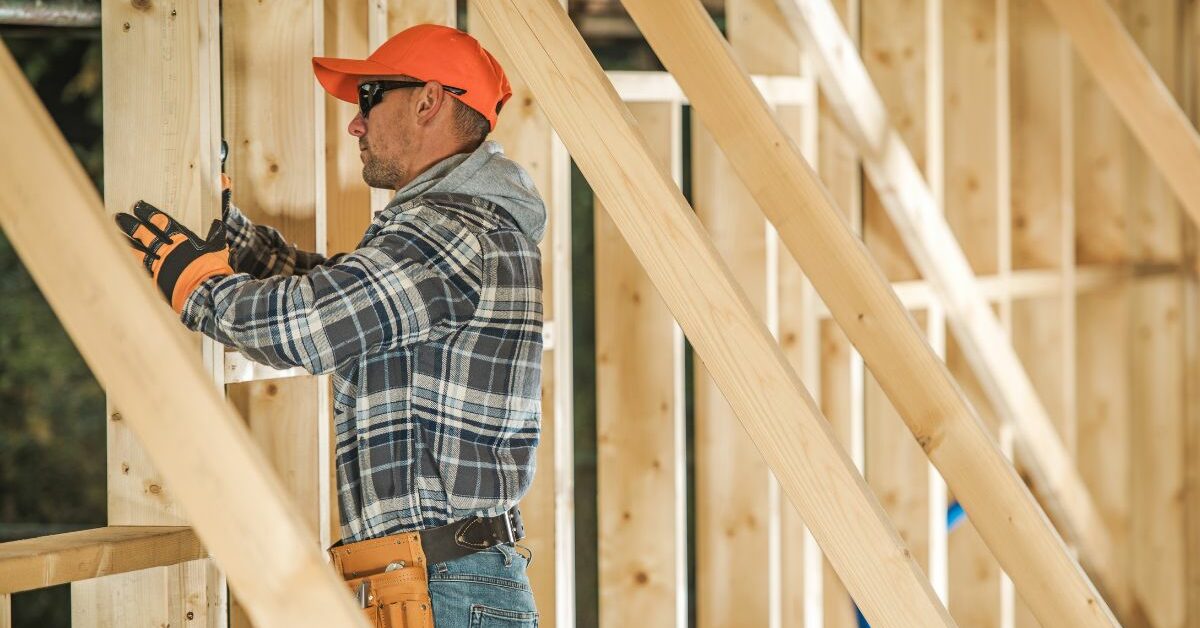How To Become A Framer?
Are you interested in pursuing a career in construction or carpentry? Have you considered becoming a framer? Framers play a crucial role in the construction industry, responsible for the framework of buildings. In this article, we’ll guide you through the steps to become a framer, the skills you need, and the benefits of this career path.
Steps To Becoming A Framer
The process of becoming a framer can be both rewarding and challenging. Framing is an essential part of the construction industry, and framers are responsible for building the framework of buildings, bridges, and other structures. If you’re interested in pursuing a career as a framer, there are several steps you can take to achieve your goal.
- Obtain a High School Diploma or Equivalent
While not always a requirement, having a high school diploma or equivalent is important when looking for jobs or apprenticeships. A high school diploma shows potential employers that you have the basic skills necessary to succeed in a job or training program. If you didn’t graduate from high school, you can earn a General Education Development (GED) certificate instead.
- Gain Hands-On Experience
One of the best ways to gain experience as a framer is to enroll in a carpentry or construction program at a vocational school. These programs offer hands-on training in the skills you’ll need to be a successful framer, such as basic woodworking, blueprint reading, and safety protocols. You’ll also have the opportunity to work with other students and learn from experienced instructors.
Another great way to gain experience is through an apprenticeship program. These programs give you the opportunity to work alongside experienced framers, learning on-the-job skills while also earning a wage. Apprenticeships typically last 3-4 years, and upon completion, you’ll receive a nationally recognized certification. You can find apprenticeship programs through unions, trade associations, or directly through construction companies. - Apply for Framer Positions
After gaining experience through a vocational program or apprenticeship, you can start applying for framer positions. Entry-level positions may be available at construction companies or framing contractors. As you gain more experience and expertise, you can advance to higher-paying positions or start your own framing business.
It’s important to note that framing can be physically demanding work, so it’s essential to be in good physical shape and have the ability to lift heavy materials. You’ll also need to have good hand-eye coordination, be able to read and interpret blueprints, and follow safety protocols.
Becoming a framer requires a combination of education and hands-on experience. By following these steps, you can develop the skills necessary to succeed in this rewarding career.
Skills Needed For Becoming A Framer
Becoming a successful framer requires a unique set of skills and qualities. Here are a few key traits you’ll need to develop:
- Attention to detail
- Manual dexterity and coordination
- Physical stamina and strength
- Ability to follow safety procedures
- Problem-solving skills
- Ability to work well in a team
- Understanding of building codes and regulations
Attention to detail is an essential skill for framers. Framing requires precise measurements and cuts, so it’s important to be meticulous in your work. One small mistake can throw off an entire project, so it’s crucial to be careful and focused.
Manual dexterity and coordination are also important skills for framers. You’ll be using a variety of tools, including saws, hammers, and drills, so it’s important to have good hand-eye coordination and be comfortable working with your hands.
Physical stamina and strength are necessary for the job, as framing can be physically demanding. You’ll be on your feet for long periods of time, lifting heavy materials, and working in awkward positions. It’s important to be in good physical shape to avoid injury and keep up with the demands of the job.
Following safety procedures is crucial in any construction job, and framing is no exception. You’ll need to be familiar with safety regulations and procedures, and be diligent in following them to ensure a safe work environment.
Problem-solving skills are also important for framers. Construction projects often present unexpected challenges, and it’s up to the framer to find creative solutions to these problems. Whether it’s figuring out how to work around a difficult corner or finding a way to make a non-standard sized piece fit, problem-solving skills are essential.
Working well in a team is also important for framers. Construction projects are rarely solo endeavors, and it’s important to be able to communicate effectively and work collaboratively with others on the job site.
Additionally, you’ll need to have a solid understanding of building codes and regulations, as well as knowledge of different types of building materials and tools commonly used in framing. This knowledge will help you work more efficiently and effectively, and ensure that your work meets industry standards.
What is A Framer?
A framer is a highly skilled construction worker who specializes in creating the framework of a building. This is an essential role in the construction process, as the framework is the foundation upon which the rest of the building is built.
One of the key responsibilities of a framer is to read and interpret blueprints. This requires a great deal of technical knowledge and an ability to visualize how the finished building will look. Once the blueprint has been studied, the framer will measure and cut materials to the required specifications.
Installing beams and joists is another important task for a framer. These structural elements must be placed precisely and securely to ensure that the building is safe and stable. The framer must also ensure that all components of the structure are properly aligned, as even a small deviation can cause major problems down the line.
In addition to technical skills, a framer must also possess physical strength and stamina. The work can be physically demanding, requiring the ability to lift heavy materials and work in awkward positions. Safety is also a top priority, as the work can be dangerous if proper precautions are not taken.
Overall, the role of a framer is a crucial one in the construction industry. Without skilled framers, buildings would lack the necessary foundation to stand strong and tall.
Benefits of Becoming a Framer
Working as a framer can be an incredibly rewarding career choice, both personally and financially. Not only does it offer a competitive salary and benefits, but it also provides ample opportunities for growth and advancement within the industry.
One of the most satisfying aspects of working as a framer is the daily progress you see on projects. As a framer, you’ll be responsible for creating the structure and foundation of buildings, which means that you’ll be able to see tangible progress every single day. This can be incredibly satisfying, especially for those who enjoy working with their hands and seeing their hard work pay off.
In addition to the daily satisfaction of seeing your work come to life, working as a framer also provides opportunities to gain new skills and expertise. Whether you’re learning new techniques for framing complex structures or staying up-to-date on industry regulations and safety standards, there’s always something new to learn in this field.
For those who value independence and flexibility, framing can be an ideal career path. Many framers work as freelancers or start their own framing businesses, which gives them the freedom to set their own schedules and take on projects that align with their interests. This level of autonomy can be incredibly appealing to those who prefer to work independently and be their own boss.
However, it’s important to note that becoming a successful framer requires dedication and hard work. Gaining hands-on experience and developing key skills are both essential components of building a fulfilling and lucrative career in this field. Additionally, staying up-to-date on industry trends and regulations is crucial for ensuring that you’re providing the highest quality work possible.
Working as a framer offers a variety of benefits, including job stability, competitive salary and benefits, and opportunities for growth and advancement. Whether you’re interested in working for a construction company or starting your own framing business, there are plenty of opportunities to build a fulfilling and successful career in this field. With dedication and hard work, you can become a skilled and respected framer, and enjoy the many rewards that come with this profession.




